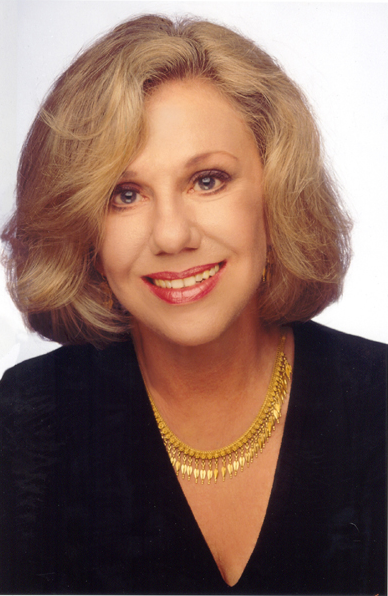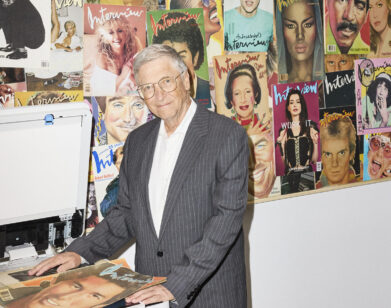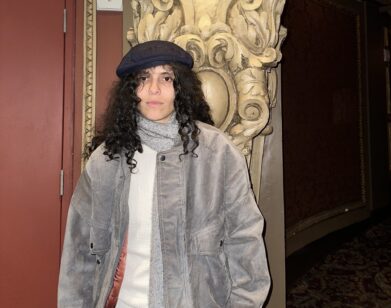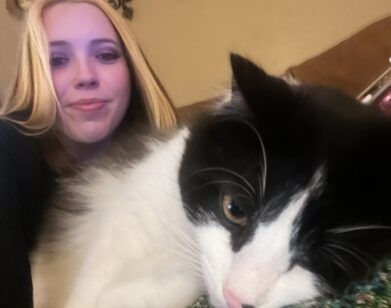Getting Intimate with Erica Jong

ERICA JONG
Erica Jong has long been a sexual and literary pioneer, most notably when she gave readers a window into women’s fantasy lives in her groundbreaking 1973 novel Fear of Flying. Her latest, the anthology Sugar In My Bowl: Real Women Write About Real Sex (ECCO/HarperCollins) reevaluates some of the romantic notions she first set out to reveal about sex. Jong, sometimes overlooked for her tremendous skill as a poet, has crafted candid accounts of love and passion from renowned female writers—including Anne Roiphe, Karen Abbott, Julie Klam and Susan Cheever to Jong’s daughter Molly Jong-Fast, reacting directly to her mother’s “free love” generation—into a sensual and sensitive read. In a new technology-driven age, Jong and her authors explore the fresh neuroses, ideas, and insecurities that surround sex, as well as old notions and longings that will always be tied to human sexuality. We talked with Jong about what has changed since Fear of Flying, her own sexual discoveries, what still shocks her, and what sex will look like in the future.
ROYAL YOUNG: The Internet has so overexposed sex. Is there any mystery left?
ERICA JONG: Well, I don’t know—you know, good sex is still a mystery. Perhaps humping and pumping is not a mystery, but good sex is a mystery, and how human beings become truly intimate remains a mystery. You know, most sex is not really intimate.
YOUNG: What do you mean?
JONG: What I mean is that most sex doesn’t really bring people together. You have to reach a certain level of connection, I think, and that’s pretty rare. I don’t think that sex necessarily produces intimacy. I mean that was probably the mistake of my generation, that we thought that having sex with anyone would be intimate and it wasn’t. It could be exploitative, it could be boring. [laughs]
YOUNG: [laughs] Yeah.
JONG: It doesn’t necessarily open up people’s souls, and I think that we have to learn that really true intimacy is rare and it depends on other things besides sex.
YOUNG: What would you say it depends on? Is it love? Is it that emotional connection?
JONG: It’s the emotional connection and whether or not people, you know, want the best for each other. Sex just as a drive, as a hormonal drive, is not very interesting. That’s what I think, anyway. I mean, reading all these stories about men grabbing chambermaids, I think, what’s in it for them?
YOUNG: The man or the chambermaid?
JONG: The man. I mean, we’ve been reading all these stories about men grabbing women, unless they’re sadistic men, who get a charge out of forcing people, which seems to be the case, in Dominique Strauss-Kahn. Now people are reporting it, they didn’t in the past. But, I think that that’s the kind of sex I have no interest in, forced sex.
YOUNG: What is more exciting, the reality of sex or the fantasy?
JONG: Well, you know, we all have fantasies about sex that are more perfect than anything in reality. I mean, that was really the big discovery of Fear of Flying, that the fantasies that Isadora had turned out to be better than the reality. And I think that must have grabbed a lot of people, because they probably felt the same way.
YOUNG: And how has your own view of sexuality and also, writing about it, changed since then?
JONG: I think I’ve become more cynical about sex. Meaning, I don’t think sex in and of itself leads to an epiphany.
YOUNG: Did you think that?
JONG: Maybe I did, in my fantasy life.
YOUNG: Yeah.
JONG: I’ve become more conservative about sex as I’ve gotten older.
YOUNG: Did any of the pieces in your book surprise you?
JONG: Well, I was surprised by my daughter’s generation and how they were rebelling against the ’70s idea that sex was perfect and it should be sought. I mean, I thought Molly’s piece was very brave.
YOUNG: Me too.
JONG: And very funny.
YOUNG: Me too, I really related to it.
JONG: Did you?
YOUNG: Yeah, because my dad was such a pornographic artist, so I grew up just so overexposed to sex. So I definitely related to the kind of center of her piece, which was “my parents had sex, so I didn’t have to.”
JONG: Right. [laughs] I think it’s a very funny piece, and I think Molly has great courage in taking on her mother’s profession. If anybody wants to know if I was a good mother, that’s the biggest sign I was, because I gave her the courage to take me on.
YOUNG: Yes.
JONG: And many parents don’t give their children that.
YOUNG: Were there any romantic notions, either in the book or that you’ve discovered in life, that have shocked or enlightened you?
JONG: I liked Karen Abbott’s rather tender picture of people making love in a nursing home. There’s been very little written about that, about the fact that old people also fall in love. And I thought that was great, that she attempted that. And I thought Julie Klam’s piece was amusing. What is interesting about this anthology is that you have the whole range. You have Anne Roiphe writing about kids playing doctor and childhood sex, and then you have Abbott writing about sex in the nursing home, so you have a view of sex at all ages of life, which I think is very interesting.
YOUNG: It is. Do you think men and women’s sexual hang-ups are more similar or different than anyone would like to think?
JONG: I think we’re more similar. In that we all deal with our fantasy lives and sometimes are disappointed by reality. We all go through a period of discovery about sex, so I think we are more similar than different.
YOUNG: What was that period of discovery for you?
JONG: I sort of went through it in my thirties, when I was divorced. I was very proper. I married my first lover, in my first marriage. I was not so sexually adventurous until my thirties, when I was divorced. And what I discovered was is that it’s rare to find a person that you feel very intimate with, and you can sleep with lots of people and not find what you’re looking for. I don’t know if that’s the same for men.
YOUNG: [laughs] I’ll let you know when I know.
JONG: [laughs]
YOUNG: What does sex look like in the future?
JONG: I think it looks exactly like it looks in the past, except it will be less connected with procreation. Because we have the ability to test zygotes for genetic diseases, and I think people will take advantage of that.
YOUNG: So you think it will all be about pleasure?
JONG: About pleasure, and finding true intimacy. Yes, I hope so.
SUGAR IN MY BOWL: REAL WOMEN WRITE ABOUT REAL SEX IS OUT JUNE 14.






